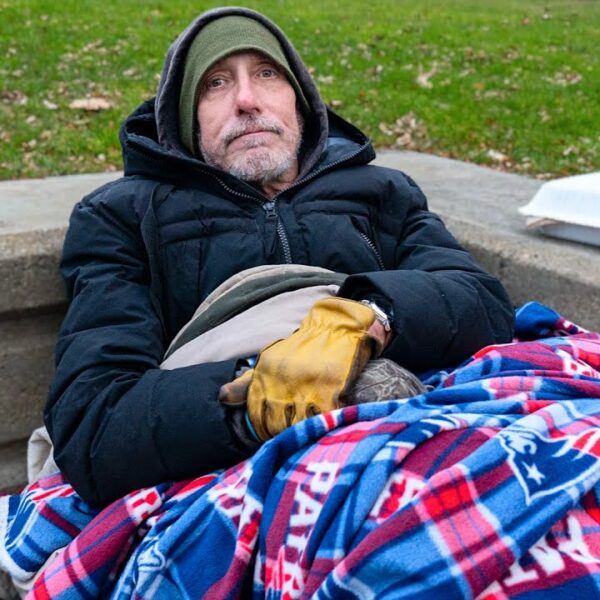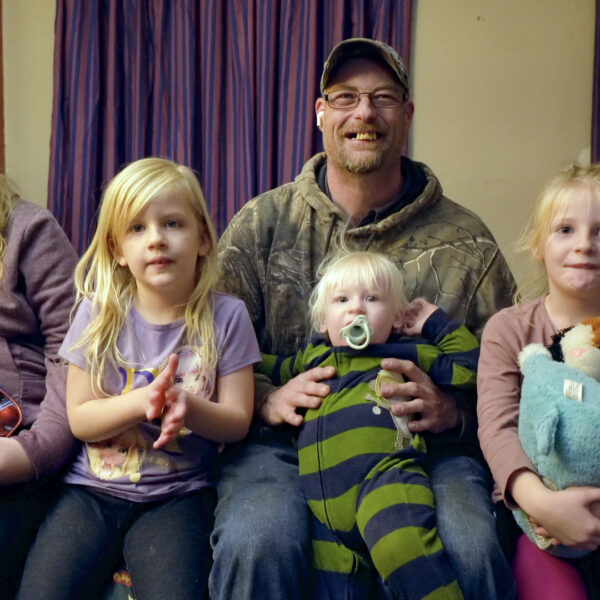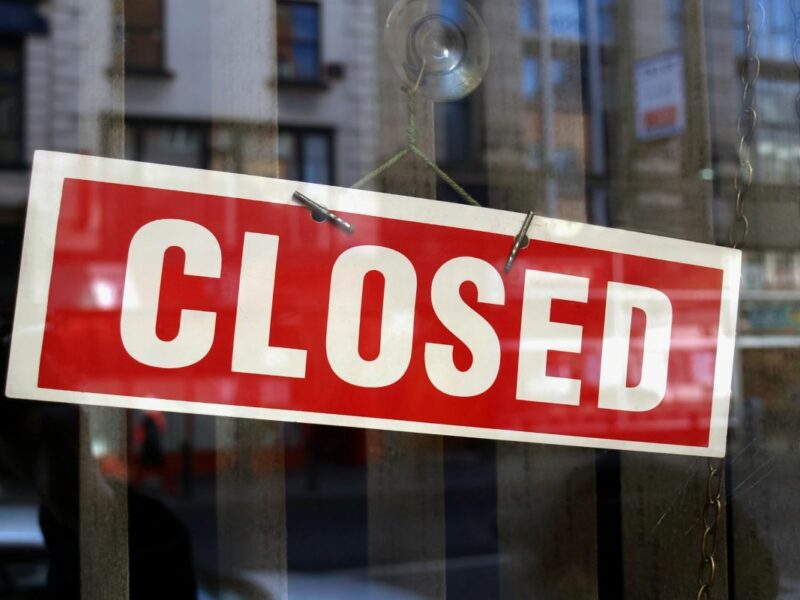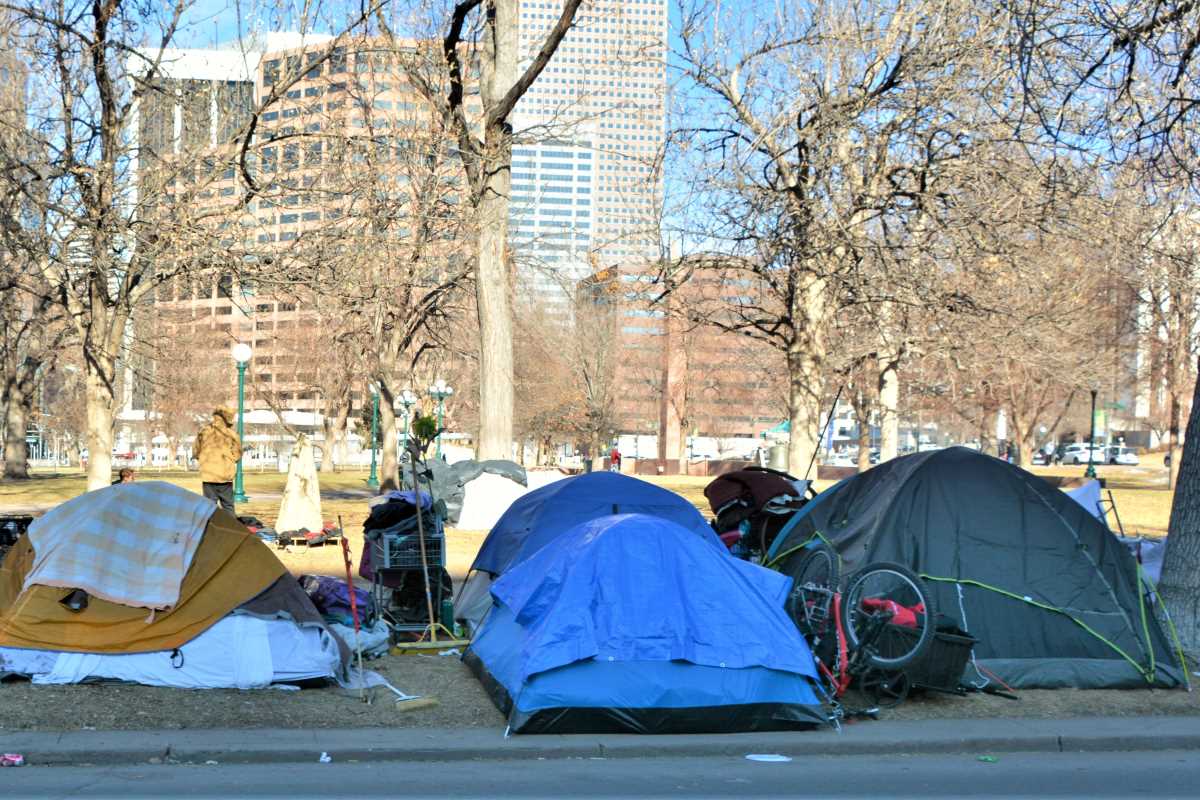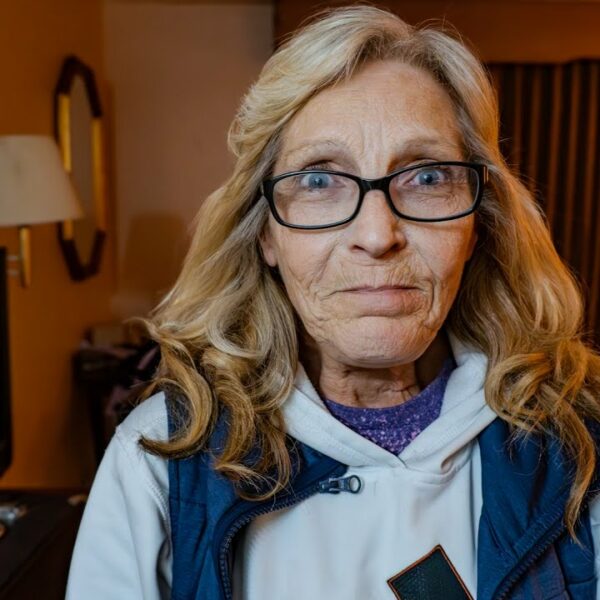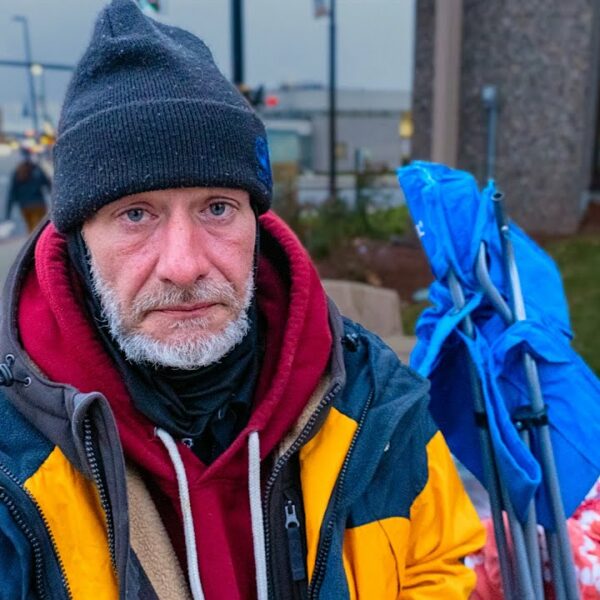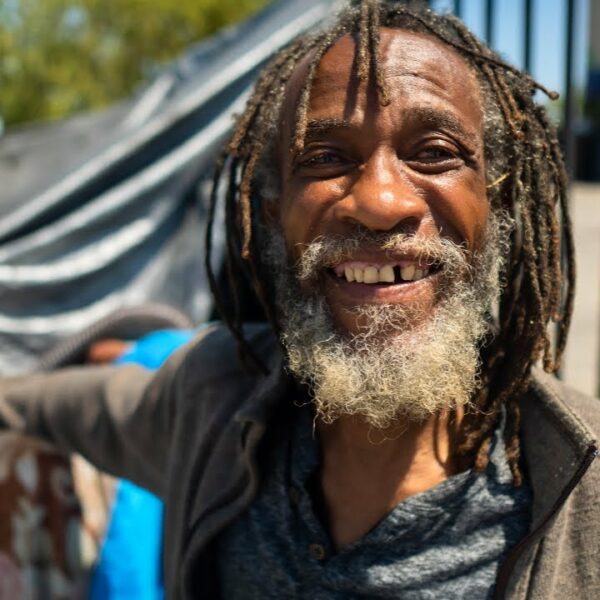Cities across the country are deploying civilian enforcement teams to help police homelessness as it is increasing.
In Denver, the city will spend more than $2.7 million next year expanding its Street Enforcement Team (SET), a six-member team deputized to write tickets for several quality-of-life ordinances. The ordinances range from smoking marijuana in public to trespassing and urban camping.
Murphy Robinson, executive director of Denver’s Department of Public Safety, told KDVR that SET is a “first of its kind for Denver.”
“[We’re] trying to set a tone for what we will accept and will not accept in our [city],” Robinson added.
In an interview, Eric Tars, legal director for the National Homelessness Law Center, told Invisible People that what makes Denver’s iteration unique is that the city officially deputizes SET members. Most other civilian enforcement teams exist on an informal basis, Tars said. For example, businesses often hire private security guards to keep homeless people off their property.
“This creates a criminal charge that would be handled by a criminal court,” Tars said. “It’s one thing to ask someone to move along. But it’s an entirely different approach to deputize civilians and make them citizens part of a law enforcement team.”
Some Denver officials have argued that SET is necessary to connect people experiencing homelessness with services and shelter more quickly. However, others argue that the group poses a more dubious threat to homeless people, saying they are often an excuse not to provide better services.
Denver City Councilwoman Robin Kniech told Westword that she is concerned with the scope of authority under which Denver’s SET will operate. SET members have the authority to ticket an individual for things like providing false or misleading statements, something that Kniech argues takes years of legal training to master.
“False information is an investigatory role. I’m an officer who’s investigating a crime, and someone gives me a false name. Or failure to obey a lawful order, that’s often about managing a scene,” Kniech said. “These do not feel appropriate for a civilian enforcement team to me. I’m just struggling with this.”
Other cities like St. Paul, Minnesota, and Charleston, West Virginia, are taking similar approaches to address homelessness in their communities.
Up north, St. Paul’s city council recently voted to continue its St. Paul Business District Ambassador program. These programs are created under the auspice of neighborhood beautification. However, ambassadors often serve a dual purpose of being a second pair of eyes regarding homelessness in the city.
Joe Spencer, President of the St. Paul Downtown Alliance, told the city council the program is important because “people need to feel safe when they come to downtown,” according to a report by Fox9.
The program operates with a $1.9 million budget, 16% of which comes from city funds. Private businesses and real estate interests in St. Paul fund the rest.
Similarly, Charleston’s city council voted to establish its Business Improvement District last month. Within two weeks of the bill’s passage, another city council member introduced a bill that would ban urban camping in public spaces, according to a report by the Charleston Gazette-Mail.
The bill subjects anyone caught sleeping in a “temporary shelter,” such as a tent or sleeping bag, to a $500 fine and up to five days in jail for each offense.
Councilman Adam Knauff, who authored the bill, told the Gazette-Mail that its intent is to “ensure equal access for everyone to our public parks and public spaces.”
Tars describes ambassador programs as civilian enforcement teams “with a smile”. They also represent a “concerning” step forward for cities that would rather push homeless people out of the way than provide quality services and affordable housing, he said.
“This is part of a larger trend of downtown business associations who see homelessness in their community want to push it out of public view rather than help solve it. They want to take a law enforcement approach rather than solve the problems that put people on the streets in the first place,” Tars said.
The act of deputizing citizens to enforce local ordinances may be legal. However, Tars said this doesn’t mean enforcement teams can violate the constitutional rights of homeless people. Several court orders preclude cities from ticketing individuals experiencing homelessness when there are no shelter beds available.
“It’s been proven time and again across the country that when you build relationships with people and offers of permanent housing is what ends homelessness. Show me a city where higher enforcement has ended homelessness because it doesn’t exist,” Tars said.
How You Can Help
As more cities implement similar strategies, advocates for homeless people must try and shape public policies designed to provide aid. For civilian enforcement programs, that means focusing on:
- Determining how much a city spends on enforcement versus housing
- Gathering data on the number of encounters that result in arrest versus shelter or services
- Understanding what training materials are provided to civilian enforcement teams about:
- de-escalation
- crisis management
- legal rights of unhoused people
Most importantly, we must tell officials that solving homelessness requires more affordable housing, not handcuffs. Contact your legislators today.



